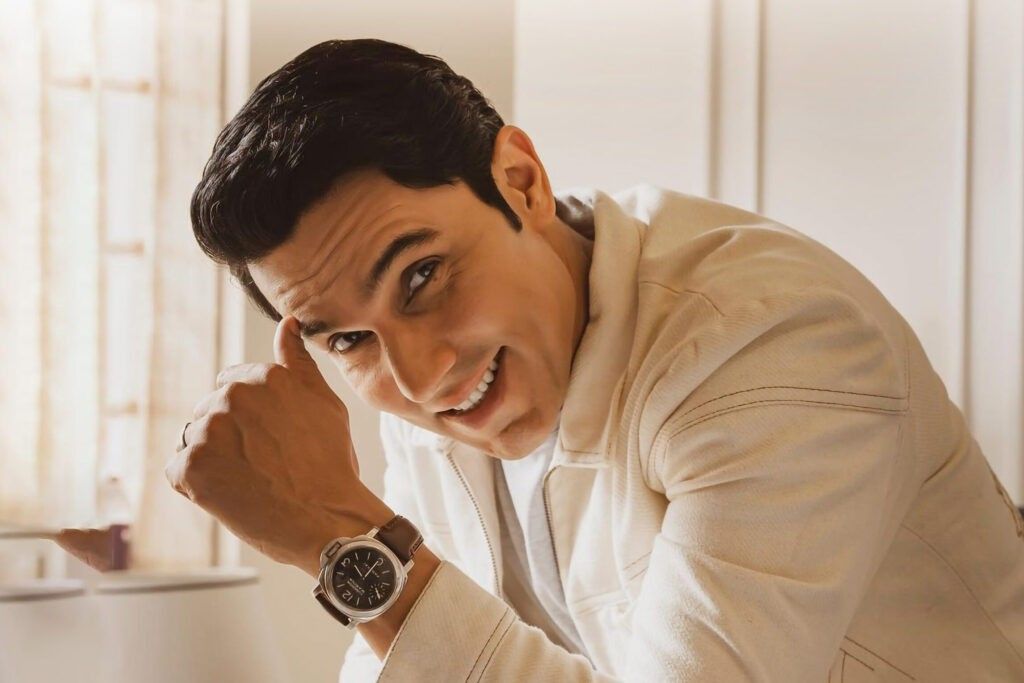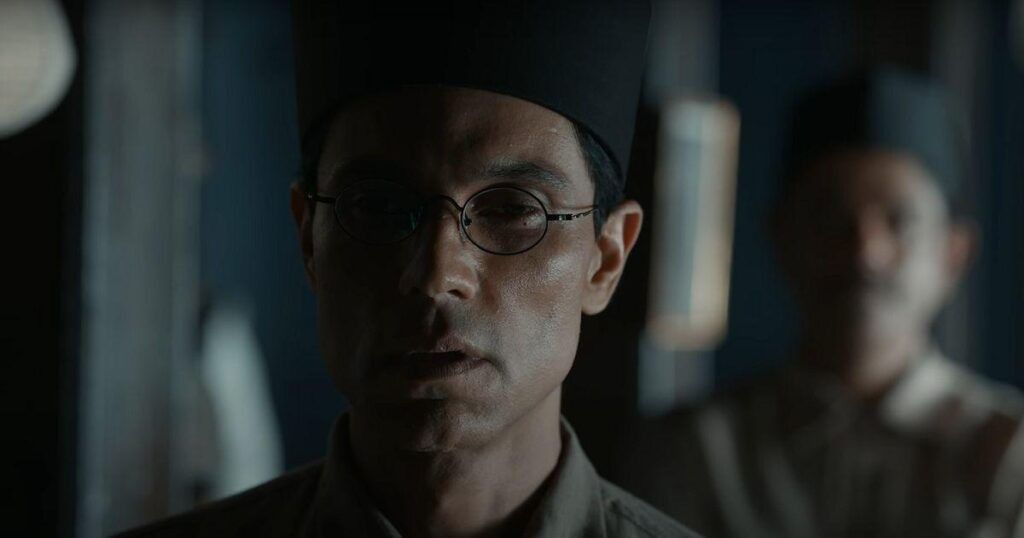RANDEEP HOODA’S willingness to take on any acting challenge has allowed him to portray a wide range of captivating roles throughout his career.
This week, the acclaimed Indian actor adds another intriguing character to his repertoire with the release of Swatantrya Veer Savarkar.
The period epic sees Hooda take on the role of India’s controversial freedom fighter, Vinayak Damodar Savarkar. Hooda has also co-written, co-produced, and made his directorial debut with this film based on real-life events.
Eastern Eye caught up with the multi-talented star to discuss the complexities of his ambitious project and the profound significance of bringing this compelling story to life. He also opened up about casting Ankita Lokhande in a lead role despite initial reservations and the controversy surrounding Swatantrya Veer Savarkar being a propaganda film.
Does the rousing response to Swatantrya Veer Savarkar’s trailer assure you of a significant audience turnout for your upcoming film?
I hope so. The response to the trailer has been very unanimous about its quality and the kind of film it promises to be. And I want to assure everybody that it’s only 10 per cent of the film; there’s 90 per cent more to see.
However, the film is also facing some opposition…
There has obviously been opposition to the story and facts presented in the movie, which I welcome with open arms, because only then can we start a discussion about the history that has been taught to us and what has not been taught. Only then can we realise it was not only a bunch of people, and only one party called the Indian National Congress, that got us independence through non-violence.
Could you elaborate?
There were thousands of people who sacrificed their lives, who were jailed, hung, put in front of cannons and blasted. I’m just trying to put another piece [of information] in , what I feel is comprehensive knowledge and another perspective of our history.
Tell us more about what drew you to this film. Why did you decide to not only play the lead role, but also direct, co-write and produce it?
I sometimes feel it was probably pre-decided by Savarkar himself. He wanted to get to the most dedicated actor in the industry and then ask him to do everything. But yeah, the fact is that I was [initially] unaware of Savarkar. His contribution through his rather large life kind of egged me on to learn more about him. There is so little about the armed revolution that is taught to us. It is about time we looked at it from a more holistic point of view.
Were you sceptical about doing the film?
A lot of people, my well-wishers, felt that I should not even associate myself with this movie [in any capacity]. [They felt] it would colour my image and categorise me as a member of a party, which egged me on even more.
I said, why not a movie on Savarkar? Why is everybody afraid of that? And why are people so eager to either abuse him or praise him? So, for me as an artist, all these things make for a very interesting introspection on Savarkar’s life and my interpretation of it.

The film hits theatres on Friday (22), just weeks before India’s general elections. Was this a deliberate decision?
I wanted to release it on (India’s) independence day (August 15) last year, but it didn’t work out. Then, I wanted to release it on January 26 (India’s Republic Day), which also didn’t pan out. Now, it’s finally being released on the day before Martyrs’ Day, coinciding closely with the elections. So, maybe Savarkar and his story was destined to become more of a conversation piece due to it’s timing near the elections.
It’s not the first time you are headlining a biopic, but would you agree Swatantrya Veer Savarkar has been the most challenging?
Oh, absolutely. When it comes to biopics, yes, because this involved portraying an intellectual giant, a man with a very clear vision, and the many stages of his life, including his imprisonment. He was in confinement by the British for 27 years of his life. And he was first a romantic revolutionary, then a pragmatic revolutionary, [before evolving into] a very pragmatic social reformer who was against the caste system and built temples where everybody could pray together.
What else did he do in that regard?
He used to [organise] feasts for all castes, and advocated inter-caste marriages so that the caste system would cease to exist among Hindus. And then, of course, he had a very interesting take on a unifying political ideology for freedom at that time, which defined Indians – geographically, culturally and politically – as one, no matter what religion, caste, group or social structure they belonged to.
If you live between the Indus river and the Bay of Bengal, and you think this is your ancestral land, you’re a Hindu. If you think that this culture – what we eat, what we wear, what festivals we celebrate – are yours, then you’re a Hindu.
Can you elaborate on that aspect?
At that time, there was a fear of a pan-Islamic invasion from the Northwest Frontier Province. Most of the British soldiers were Muslims. So, after his persecution in Kalapani (the British cellular jail in Andaman and Nicobar islands) by the Pathans, Savarkar thought, what if they attacked in the name of religion? Are they going to fight for religion, or for the country? So, he put in the last clause, which was that this should be a land of your faith and your karma as well. As long as you put the country above religion, geographically and culturally, you’re a Hindu – no matter which religion, caste or community you belong to.
How do you reply to claims that the movie is just propaganda?
My message to them is that it is an anti-propaganda film because there has been a lot of propaganda against Savarkar, right from falsely accusing him of Mahatma Gandhi’s murder conspiracy, and then subsequently calling him names like Maafiveer and “stooge of the British” – all labels attached to him by uneducated and misinformed people. If he was such an apologist and a British stooge, then why did they keep him in captivity for 27 years?
These are the kind of things I have addressed in the movie. But I have not made a preachy movie. I have told it like a modern-day story.

Who is your target audience?
My target is the young audience. I’ve tried to connect with a younger crowd and wanted it to become a movement of not only discovering an alternative or forgotten part of our history in Savarkar, but about thousands who gave up their lives, their families, and sacrificed so much for the country. I want students to go to college wearing a Savarkar T-shirt, like they wear Bhagat Singh T-shirts.
Your co-star, Ankita Lokhande, recently said that you were not sure of casting her because she is too pretty. What changed your opinion later?
I don’t know whether that’s entirely true, but I [initially] felt that she did not fit the part based on what I knew about the character. But then I shot her scenes in a certain style. I made her do her part in a way which I felt suited the character, and she turned out to be perfect for the role.
Did you shoot the film at real locations?
Yes, I filmed extensively at Kalapani. In fact, I wrote the movie in a room, having only seen pictures of Kalapani. But when I went there, that’s when the true horror of colonisation struck me. The horrors inflicted upon the colonies during plagues and world wars are often not mentioned. We’re led to believe the English and Americans were the good guys, while only the Nazis persecuted and killed people. That’s simply not true.
Colonisers everywhere, the imperialists, exploited and treated us in a subhuman manner. This is something we should never forget. My movie serves as a reminder of that.
Did making this movie change you personally?
Definitely. I now have a newfound respect for all my directors and producers because of the challenges I faced while making this film. I did not have prior knowledge of production or direction, but I learned on the job. This movie has broadened my horizons, both personally as well as professionally.
What is next for you?
I want to act in two or three movies before I take up the mantle of a director again, because that is my first love and there is a lot less work to do. I want to take a break from this clerical, managerial job that direction eventually becomes and go back to just being an actor for a while.
I am in the process of creating more ideas as a writer, director, and producer as well. But that will take some time. But I want to be out there as an actor and perform in more films.

